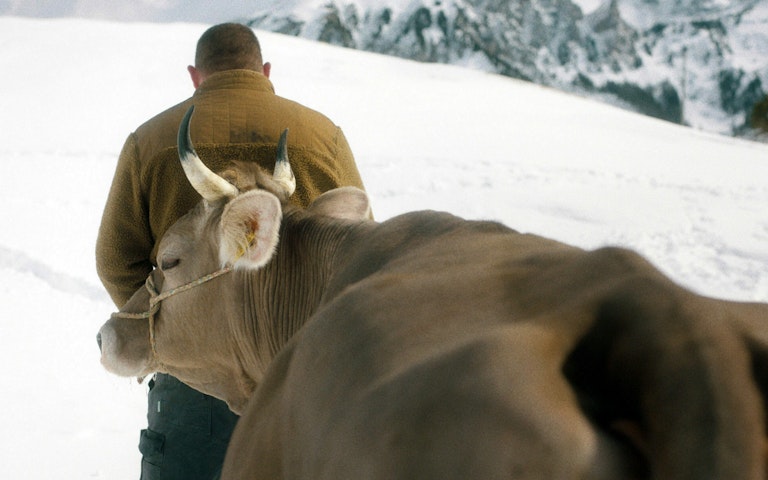Young Critics Review: Corsage

Sugar-spoon feminism
Not Sissi, but Elisabeth. Marie Kreutzer’s Corsage starts off on a promising premise: an act of demystification directed at Austria’s most famous empress, the iconic (almost in a religious sense) young woman whose face you will find on every possible trinket in Viennese souvenir shops. She is not who we’ve all been accustomed to and just about to turn 40—an age at which society has deemed that as a woman you should start to be losing relevance. Faced with feelings of fading youth when all the world is obsessed with her image, Kreutzer’s Elisabeth is a lonely woman trying to escape the fate her court and her husband have imposed on her, that of being nothing more than a beautiful, unempowered phantasm.
Yet Corsage does little to actually depart from a romanticised version of Elisabeth. There is no jarring effect of hijacking from collective memory the canonical image of a historical icon like you may find in, for example, Albert Serra’s decaying and disgusting Louis XIV. Instead, the film further fuels a visual spell of attractive aristocracy through gaudy slow-motion montages set against generic modern fairy/soft vocals type of music and over relies on Vicky Krieps’s charisma to single-handedly carry the entire story. Elisabeth’s lovers only add to the old cliché of the adulterous court life, leading into an analogy already so overused in period dramas to refer to reclaiming freedom and escaping an unfulfilling marriage or a smothering court life as a woman.
Corsage’s ‘cut your hair short and loosen the corset’ rhetoric makes for a superficial and inoffensive form of feminism.
Through constant signs of a present-day reality (intentionally anachronic costumes and hairstyles, contemporary music), there is a touch of pedantic insistence for a parallel to be drawn to our current times, but Corsage’s ‘cut your hair short and loosen the corset’ rhetoric makes for a superficial and inoffensive form of feminism. The idea of the corset, aka the corsage, as a so-called instrument of torture and a metaphor for social and gender constriction feels too outdated and overused to amount to any more potent meaning, even if Kreutzer puts an interesting spin on Elisabeth’s obsession with her own beauty as some sort of celebrity culture avant la lettre. It is, however, hard to connect with Elisabeth as a real character or an actual human being, Kreutzer depicting her moments of empowerment more like the bouts of a zany and capricious woman than like someone actively striving for a change and trying to rescue herself from a restrictive environment.
Corsage is a film of lost potential. Instances of fictionalised events, modern phones left in the frame, inserts of non-narrative scenes breaking the classical flow of the narrative all make for curious anomalies but are never pushed to enough throttle to provide for a satisfying and sustained experiment, resulting in a very lazy revisionist biopic. As if not trusting itself nor the viewer to handle too much deviation from the beaten path, Corsage is often overcome by panic and constantly returns to a safe formula of the romantic period drama, self-indulging in an atmosphere of dainty airiness that reminds more of an extended pale imitation of a Florence + The Machine video than a historical revisionist film.

Dora Leu
I’m a Romanian film critic and filmmaker, currently finishing my MA in film studies at UNATC in Bucharest. I have previously graduated with a degree in film direction and have also studied art history. I write for Romanian film magazines Acoperisul de sticla and Films in Frame and, at present, I am also working on an experimental documentary about a Romanian radio station in the 90s. My greatest passions are Japanese New Wave cinema, music videos and Irish post-punk bands.


